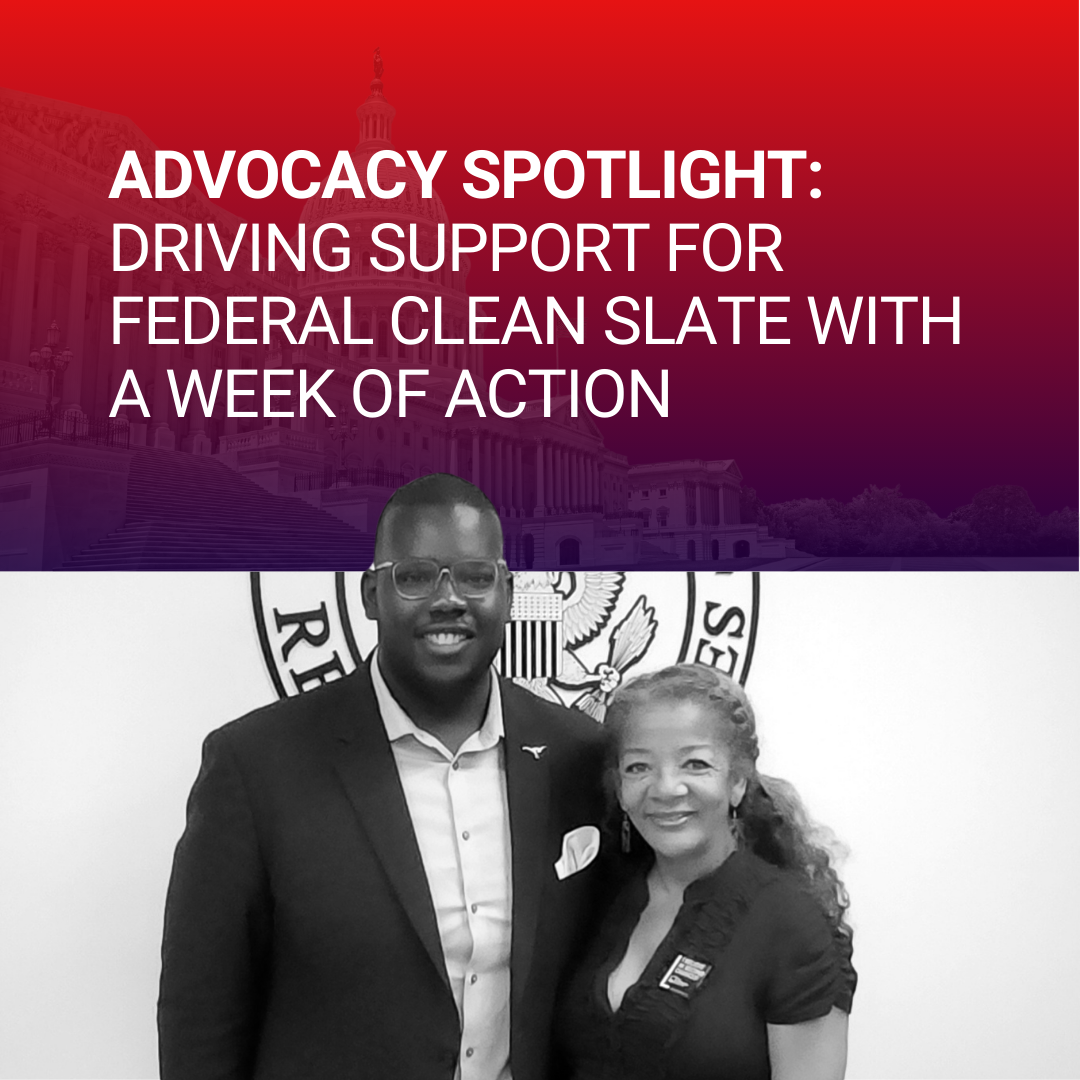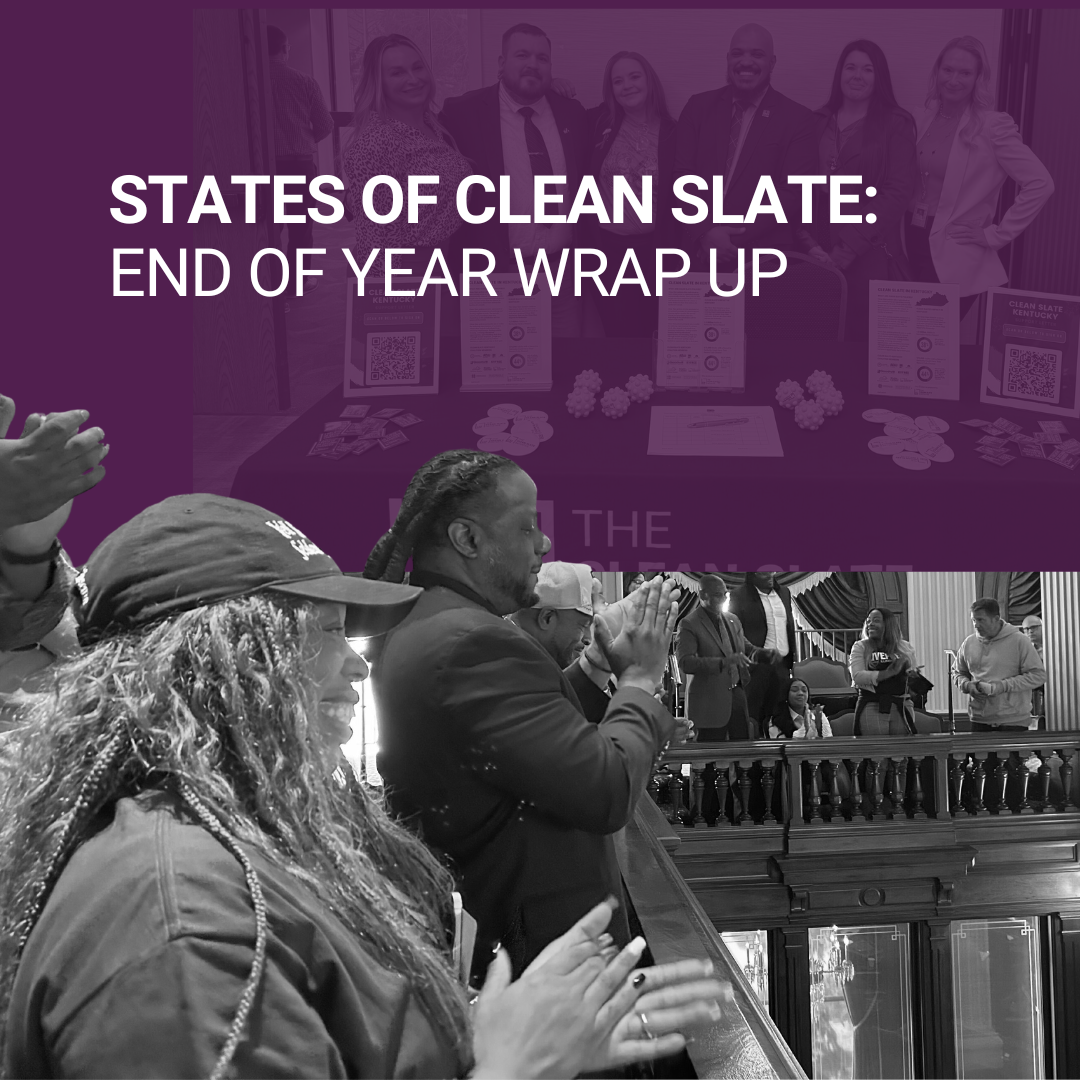Reversing the Harmful Legacy of the 1994 Crime Bill Through Record Clearance

This week’s presidential debate between Kamala Harris and Donald Trump covered a lot of ground. The candidates were asked about their positions on a range of issues, from the economy to abortion to immigration to foreign policy. However, what stuck out to me was what they didn’t discuss - solutions that are serious about safety and repairing a broken legal system that has left one in three adults in America with significant barriers to building a better life for themselves and those who depend on them.
The first step in solving a problem is acknowledging there is one. Right now, more adults (70-100 million people) have an arrest or conviction record than a four-year college degree. America is experiencing a crisis, and if we want to end the crisis, we must learn from how we got to this point.
Today, September 13, 2024, marks 30 years since President Bill Clinton signed the Violent Crime Control and Law Enforcement Act of 1994, a bill that overwhelmingly increased the number of people living with records. Since its signing, the number of Americans incarcerated in federal and state prisons has grown exponentially - from around 300,000 people in 1980 to more than 1.2 million in 2022. That bill serves as a sobering reminder of the impact a president can have on our legal system.
The 1994 crime bill incentivized harsh penalties and exacerbated a period in American history when politicians from both parties raced to one-up each other on who could be the toughest on crime. Three decades later, around 70 to 100 million adults in America live with a record that impacts their access to opportunities every day — including the economic opportunities our presidential candidates promise to deliver. The majority of these records stem from arrests, acquittals, and non-violent misdemeanors like minor drug possession that are a direct result of the “tough-on-crime” era. But even after paying for their mistakes, the true sentence for many doesn't begin until after they've paid their debt to society.
Ninety-four percent of employers, 90 percent of landlords, and 72 percent of colleges and universities use background checks to screen out applicants with records. Too often, a record appearing on a background check results in an automatic rejection, making it harder for millions of people in America to access safe housing and meaningful jobs that can help them escape poverty and prevent them from becoming re-involved with the legal system. These records stand as an immense legacy of the 1994 crime bill.
As someone with an arrest on my record from 20 years ago, my family and I have personally experienced the stigma that comes with having a record - and the doors that can close because of it. As CEO of The Clean Slate Initiative, I have also seen how impactful it can be to seal records for people who have earned their second chance. The benefits extend far beyond the individual. Research suggests that a year after record clearance, people are 11 percent more likely to be employed and earn 22 percent higher wages.
The debate’s spotlight on the economy signals that both campaigns understand that meaningful employment and opportunities for economic mobility are concerns for working families. Nevertheless, a solution that has so far resulted in 14 million people in 12 states having a pathway to building a better life was never brought up. Clean Slate policies spur economic growth while also addressing the unintended consequences of the 1994 bill by ensuring those who earn a second chance receive it.
Most people know now that the United States incarcerates people at a rate higher than almost any other country in the world, leaving millions to navigate life with a record. However, too few recognize the challenges that record creates and that giving people a second chance to live crime-free is one of the best ways to prevent crime.
Thankfully, things are starting to change. While the 1994 crime bill had overwhelming public support at the time, more recent data shows that 78 percent of voters support legal system reform. Those voters want serious policy alternatives that keep communities safe, like Clean Slate legislation. Organizations across the political spectrum understand that giving our neighbors a fair chance to redeem themselves helps keep communities safe. While “tough-on-crime” used to be the bipartisan approach, today, bipartisan support focuses on policies that provide people with an opportunity for redemption — even if it’s not front and center during election season.
This growth in support has also had tangible impacts. Bipartisan support has resulted in twelve states recently passing Clean Slate legislation, and as a result, over 14 million people are on the path to getting their records fully cleared. For workers, increased access to opportunity offers hope for breaking multi-generational cycles of poverty and making communities safer. In turn, businesses benefit from an expanded labor pool.
While Clean Slate’s success heartens me, it’s clear that there’s still much to do. Recent data models show that millions of people already meet the requirements and could benefit from Clean Slate legislation. Clearing people’s records is an essential component of undoing the damage of the 1994 crime bill and building an economy for everyone. Even if it flew under the radar on the debate stage, Clean Slate policies offer the opportunity to ensure people who have turned their lives around have a fair chance at a better future.
Convening Recap Spotlight:
During CSI’s 2024 Annual Convening, we marked the anniversary of the passage of the 1994 crime bill by hosting a panel conversation with leaders of some of the most prominent criminal justice organizations in the country. Panelists discussed how they have made significant progress in reducing incarceration and recidivism and how much more there is to do to create a better, fairer system.
Panelists:
- Nicholas Turner, President, Vera Institute for Justice
- Lenore Anderson, Founder & President, Alliance on Safety & Justice
- Zoë Towns, Executive Director, FWD.US
- Brett Tolman, Executive Director, Right on Crime
Moderated by:
- Daryl Atkinson, Co-Director & Co-Founder, Forward Justice
.avif)
.avif)




.png)
